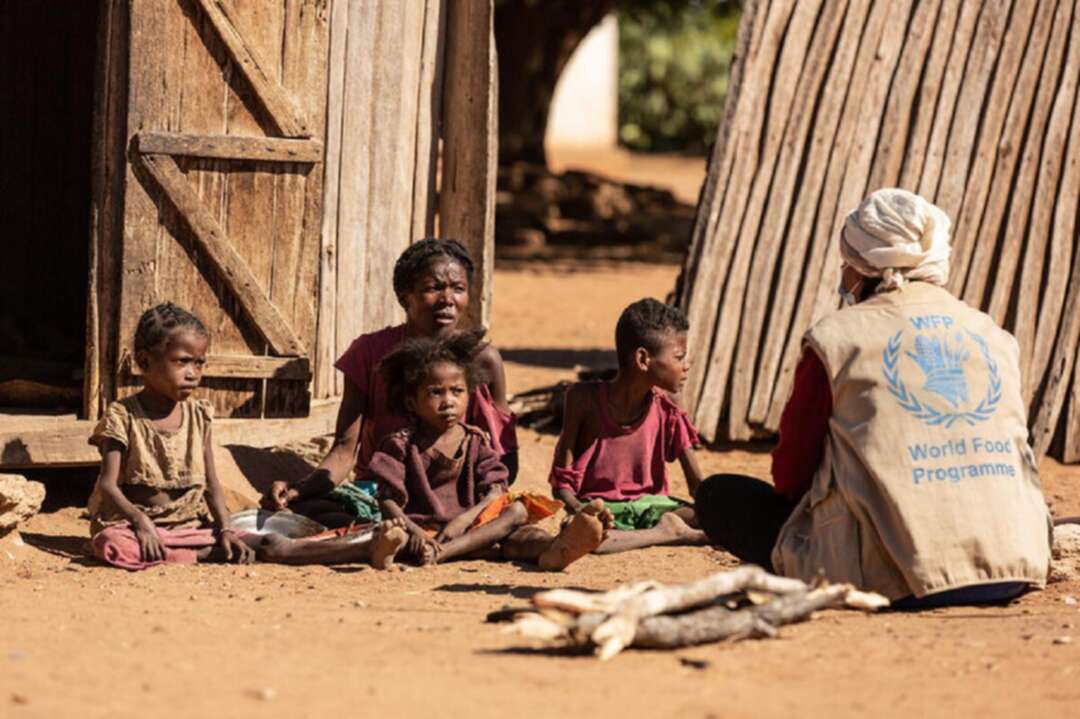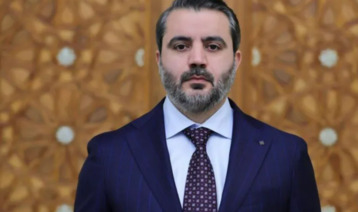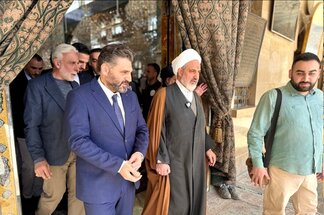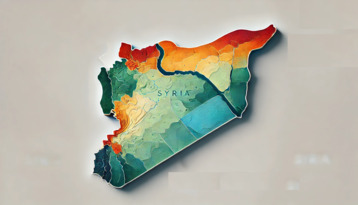-
Billions of dollars needed to avert unrest, starvation: UN food chief

Without billions of dollars more to feed millions of hungry people, the world will see mass migration, destabilized countries, and starving children and adults in the next 12 to 18 months, the head of the Nobel prize-winning UN World Food Program warned Friday.
David Beasley praised increased funding from the United States and Germany last year, and urged China, Gulf nations, billionaires and other countries “to step up big time.”
In an interview before he hands the reins of the world’s largest humanitarian organization to US ambassador Cindy McCain next week, the former South Carolina governor said he’s “extremely worried” that WFP won’t raise about $23 billion it needs this year to help millions of needy people.
Biden to host hunger conference as food insecurity, inflation hit many Americans
NGOs: One person dying of hunger every four seconds
“Right at this stage, I’ll be surprised if we get 40 percent of it, quite frankly,” he said.
Last year, Beasley raised $14.2 billion for WFP, more than double the $6 billion in 2017, the year he took over as executive director. That money helped over 128 million people in more than 120 countries and territories.
Beasley said he was able to convince the United States last year to increase its funding from about $3.5 billion to $7.4 billion and Germany to raise its contribution from $350 million a few years ago to $1.7 billion, but he doesn’t think they’ll do it again this year.
Other countries need to step up now, he said, starting with China, the world’s second-largest economy which gave WFP just $11 million last year.
Beasley applauded China for its success in substantially reducing hunger and poverty at home, but said it gave less than one cent per person last year compared to the United States, the world’s leading economy, which gave about $22 per person.
China needs “to engage in the multilateral world” and be willing to provide help that is critical, he said. “They have a moral obligation to do so.”
Beasley said they’ve done “an incredible job of feeding their people,” and “now we need their help in other parts of the world” on how they did it, particularly in poorer countries including in Africa.
With high oil prices Gulf countries can also do more, especially Muslim nations that have relations with countries in east Africa, the Sahara and elsewhere in the Middle East, he said, expressing hope they will increase contributions.
Beasley said the wealthiest billionaires made unprecedented profits during the COVID-19 pandemic, and “it’s not too much to ask some of the multibillionaires to step up and help us in the short-term crisis,” even though charity isn’t a long-term solution to the food crisis.
In the long-term, he said what he’d really like to see is billionaires using their experience and success to engage “in the world’s greatest need – and that is food on the planet to feed 8 billion people.”
“The world has to understand that the next 12 to 18 months is critical, and if we back off the funding, you will have mass migration, and you will have destabilization nations and that will all be on top of starvation among children and people around the world,” he warned.
Beasley said WFP was just forced to cut rations by 50 percent to 4 million people in Afghanistan, and “these are people who are knocking on famine’s door now.”
“We don’t have enough money just to reach the most vulnerable people now,” he said. “So we are in a crisis over the cliff stage right now, where we literally could have hell on earth if we’re not very careful.”
Beasley said he’s been telling leaders in the West and Europe that while they’re focusing everything on Ukraine and Russia, “you better well not forget about what’s south and southeast of you because I can assure you it is coming your way if you don’t pay attention and get on top of it.”
With $400 trillion worth of wealth on the planet, he said, there’s no reason for any child to die of starvation.
The WFP executive director said leaders have to prioritize the humanitarian needs that are going to have the greatest impact on stability in societies around the world.
He singled out several priority places -- Africa’s Sahel region as well as the east including Somalia, northern Kenya, South Sudan and Ethiopia; Syria which is having an impact on Jordan and Lebanon; and Central and South America where the number of people migrating to the United States is now five times what it was a year-and-a-half ago.
Beasley said McCain, the widow of US Senator John McCain from Arizona who was the 2008 Republican presidential nominee and has been the US ambassador to Rome-based WFP and the UN Food and Agriculture Organization, “is the right person at the right time” to lead the World Food Program.
They’ve been working together to make sure “she hits the ground running,” he said, But “it’s going to be a very, very challenging time” because of all the money going to the war in Ukraine, and the need to help so many other fragile economies.
Beasley said his biggest surprise was believing in April 2017, when he took over the agency and there were 80 million people in the world “marching to starvation,” that “we could end world hunger and put the World Food Program out of business.”
What he didn’t expect were the conflicts and wars, the climate shocks, the COVID-19 pandemic and the Ukraine war, he said, which raised the 80 million in desperate need of food to 135 million right before COVID started spreading in early 2020, to 276 million before Russia invaded Ukraine – “the bread basket of the world” -- in February 2022, and to 350 million now.
Beasley said “it’s hard not to get depressed” but two things give him hope.
Seeing little girls and boys smiling in the midst of war and suffering from hunger “inspires you not to give up,” he said, as does the bipartisan support in the often-divided US Congress for helping the poorest of the poor around the world.
As he returns to his family in South Carolina, Beasley said his dream remains to end world hunger.
Source: alarabiya
You May Also Like
Popular Posts
Caricature
BENEFIT Sponsors Gulf Uni...
- April 17, 2025
BENEFIT, the Kingdom’s innovator and leading company in Fintech and electronic financial transactions service, has announced its sponsorship of the “Innovation and Sustainable Technology Solutions Competition (GU - IST Solutions), hosted by Gulf University at its main campus.
This strategic sponsorship reflects BENEFIT’s active role in advancing technological innovation and fostering sustainable solutions to future challenges. It also seeks to empower Bahraini youth by enhancing their skills, capabilities, and competitiveness in innovation and solution development—contributing meaningfully to the broader goals of sustainable development across all sectors.
As part of BENEFIT’s active involvement in the competition, the company has announced that Hanan Abdulla Hasan, Senior Manager of Public Relations and Communication, will serve on the competition’s supervisory committee. Her upcoming participation reflects BENEFIT’s forward-looking commitment to championing academic and professional excellence.
Commenting on the occasion, Hanan Abdulla Hasan, Senior Manager of Public Relations and Communication at BENEFIT, said, “We are privileged to support this pioneering initiative, which aligns seamlessly with BENEFIT’s enduring commitment to fostering innovation and nurturing the potential of Bahrain’s youth. Our participation is rooted in a deep sense of social responsibility and a firm belief in the pivotal role of innovation in shaping a sustainable future. Through such platforms, we seek to empower the next generation with the knowledge, skills, and foresight required to develop impactful solutions that address future challenges, in line with the United Nations Sustainable Development Goals 2030.”
Dr. Aseel Al Ayash Dean of the College of Engineering in Gulf University commented, “We extend our sincere gratitude to BENEFIT for their generous sponsorship and support of the Innovation and Sustainable Technology Solutions Competition. This contribution plays an instrumental role in helping us achieve the strategic goals of this initiative, namely, cultivating a culture of innovation and sustainability, encouraging efforts that address the imperatives of sustainable development, and enhancing the practical and professional capabilities of our students and participants.”
The event will bring together a diverse spectrum of participants, including secondary school students, university undergraduates, engineers, industry professionals, entrepreneurs, academic researchers, and subject matter experts representing a wide range of disciplines.
The competition seeks to inspire participants to develop and present innovative, sustainable technologies aimed at addressing pressing environmental, social, and economic challenges. It encourages the formulation of business models that integrate advanced technological solutions with core principles of sustainability. Moreover, it serves as a platform for emerging leaders, entrepreneurs, and innovators to contribute to the advancement of the Sustainable Development Goals, promote the ethos of responsible technology, and demonstrate its transformative potential across various sectors.
Attendees will have the opportunity to view a series of project presentations submitted by participants, covering diverse areas such as eco-friendly product design, smart and sustainable innovations, renewable energy technologies, water conservation and management, waste minimisation and recycling, green architectural solutions, and sustainable transportation systems. Outstanding projects will be formally recognised and awarded at the conclusion of the event.
opinion
Report
ads
Newsletter
Subscribe to our mailing list to get the new updates!






















